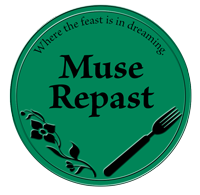Qoheleth Chapter Four
Translation from the Anchor Bible commentary by R.B.Y. Scott:
1 Next I turned to consider all the acts of oppression which are done under the sun; I witnessed the tears of the oppressed who have no one to comfort them; their oppressors have power in their hands, but they themselves have no avenger. 2 I thought the dead who are already dead more fortunate than the living who are still alive. 3 Better off than either is he who has not yet been, and has not witnessed the evil that is done under the sun. 4 I saw that all a man’s toil and skill is expended through the desire to surpass his neighbor; this, too is an empty thing and a clutching at the wind. 5 [They say] “The fool folds his hands and consumes his own flesh.” 6 I say, “Better on handful of peace, than to handfuls won by toil and reaching for the wind.” 7 I saw still another example of futility in this world– 8 a lone and solitary man, with no son and no brother, but who toiled endlessly without ever satisfying his yearning for wealth [nor asking himself], “For whom am I toiling and depriving myself of contentment?” His was an empty and miserable life.
9 Two are better than one, for they get a better return for their labor. 10 If either one falls, his companion helps him up; but what if one falls and there is no one to help him up? 11 Further, if two sleep together, they keep warm; but how can one be warm alone? 12 Where one may be overpowered [by an enemy], two can resist attack, and “a cord of three strands is not quickly broken.”
13 “Better to be a youth poor but wise, than to be a king who is old and foolish”–[like the] one who no longer had the wits to heed a warning, 14 though he had risen from a prison to the throne in the very kingdom where he was born in poverty; 15 I watched all the living under the sun throng to the side of a second youth who was to replace him. 16[But] the endless numbers of the people in the past and in the future would care nothing about him. This again is an example of futility and grasping at the wind.
—
This is another passage that is exceptionally difficult to make sense of. It is hard enough to hold all of its parts together. Most people will get as far as verse 3, and say “Aha! So Qoheleth does have an existentialist despair! The author clearly says it is better that we not be born at all.” First, there is nothing that Qoheleth ever said clearly. It is always in poetry or lofty, hard to understand Hebrew. Second, this is a statement particularly about the despairs of oppression and the oppressed. The evil of oppression cuts us both ways, so that neither the oppressor nor the oppressed should have any rest (both have no comfort or avenger). It is because of this vain human state of affairs that Qoheleth says it is better never have been. It is not a general sweeping statement, but a comparative one set after deeds done “under the sun.” Even today, when people say something like “I’d rather be dead” they usually do not usually mean that they actually want death over life and would always chose death if given a choice. It is rather an exaggeration to show how dismal one thing is in comparison to another. So here, it is again not existentialism, but an honest look at the machine of human oppression and its evils. It would be over-hasty to think that Qoheleth is claiming that not-being is preferred over being in their own right. Again, after close inspection, it will always turn out that it is the toil, work and “accomplishments” of humans that cause despair in Qoheleth, not life itself.
The exchange of adages in verses 5 and 6 are really hard to understand because they are figures of speech that are hard to translate across time and cultures. The saying in verse five is about someone who is lazy and does not work (folding their hands) so that they end up with nothing to eat but their own flesh, or torments. The saying in verse six then, says that it is better to eat what you can in peace (with one hand) than to use all of your effort and work to accomplish something to fill both your hands. So, more plainly, working and worrying away to secure plentiful food for yourself is just as vain as doing nothing and starving. It is better to eat what is given to you, and to enjoy things as they are given to you. It is the worry about eating or not eating that is the problem for Qoheleth. We should continue to work, we should not spurn things in idleness, but neither should we spend all our energy worrying about what we have secured (or not secured) for ourselves. For that is what is a vain chasing after the wind. It is not bad to want good things, it is bad to expect them. It is not bad to work for good (or food), it is bad to expect good (or food) when you have worked for it. It is always bad to worry, and to fret, and to expect these are us grasping after the wind. It is good to work, enjoy, and share for these are things that are not by our control or effort, but God-given.
Verses nine through twelve are among the most comforting in Qoheleth. So far we have heard how all our own striving, worrying, and power leads to nothing but vanity and chasing after the wind. We cannot, by our own power, get to anything worthwhile under the sun. But here is hope, for if there is one thing that is never vain for Qoheleth, it is our ability to trust in others (be it God, or our community.) Luther’s commentary on this passage glosses it this way: “it is better to be in association with others and to enjoy things in common than to be a solitary miser who only cares about himself and grabs things for himself.”(LW 15, 69). One who is curved in on themselves knows only terror, vanity, and destruction. But if we are curved out toward God and one another, there is a great amount of comfort, warmth, and good. It is easy to miss the positive conclusion and comfort of these short four verses for all the vanity that Qoeheleth is also keeping track of.
But the message is the same with the last four verses of chapter four (13-16), for the young and poor youth trusts much in others and will “heed their warnings” and is curved out toward community. But the old King has forgotten his roots, and makes no connections with the people before or after him. The conclusion then (that is easy to miss) is that we should trust in God and one another above ourselves and our own toil.
Qoheleth doesn’t go here, but this could even serve as a kind of answer to the problem of oppression that chapter four began with. If we are to truly trust in others, and not in our own powers and worries, the playing field must be leveled. Trust breaks the bonds of oppression. Oppression happens when we curve in on ourselves in power, and curve others in on themselves in shame. Freedom is a curving outwards. It is a trust in the strength of all together. Freedom is trust in God, and not in our own power or lack of power. What could be more opposite oppression than a strong cord woven together in trust? That kind of bond is not quickly broken. And if we truly rely on one another, it is all the more difficult to oppress someone if you need them for warmth. For oppression will quickly make that warmth go cold for both parties. Oppression is always an attempt at controlling people for one’s self. Trust is always outside of our own control. It is impossible for us to make trust in others. Trust must always be shared and given, when oppression is always taken and dealt. It is ideas like this that are behind Mahatma Gandhi and Martin Luther King Jr., and their commitments to nonviolence. The best way to break oppression is over the tough work of trust-formation, community, and love. Again, none of this is what Qoheleth concludes. Instead the two parts are simply left unreconciled: Power grabbing, Curved-in life, and oppression are bleak and vanity of vanities; curved-out life, community and trust are good and full of warmth.

